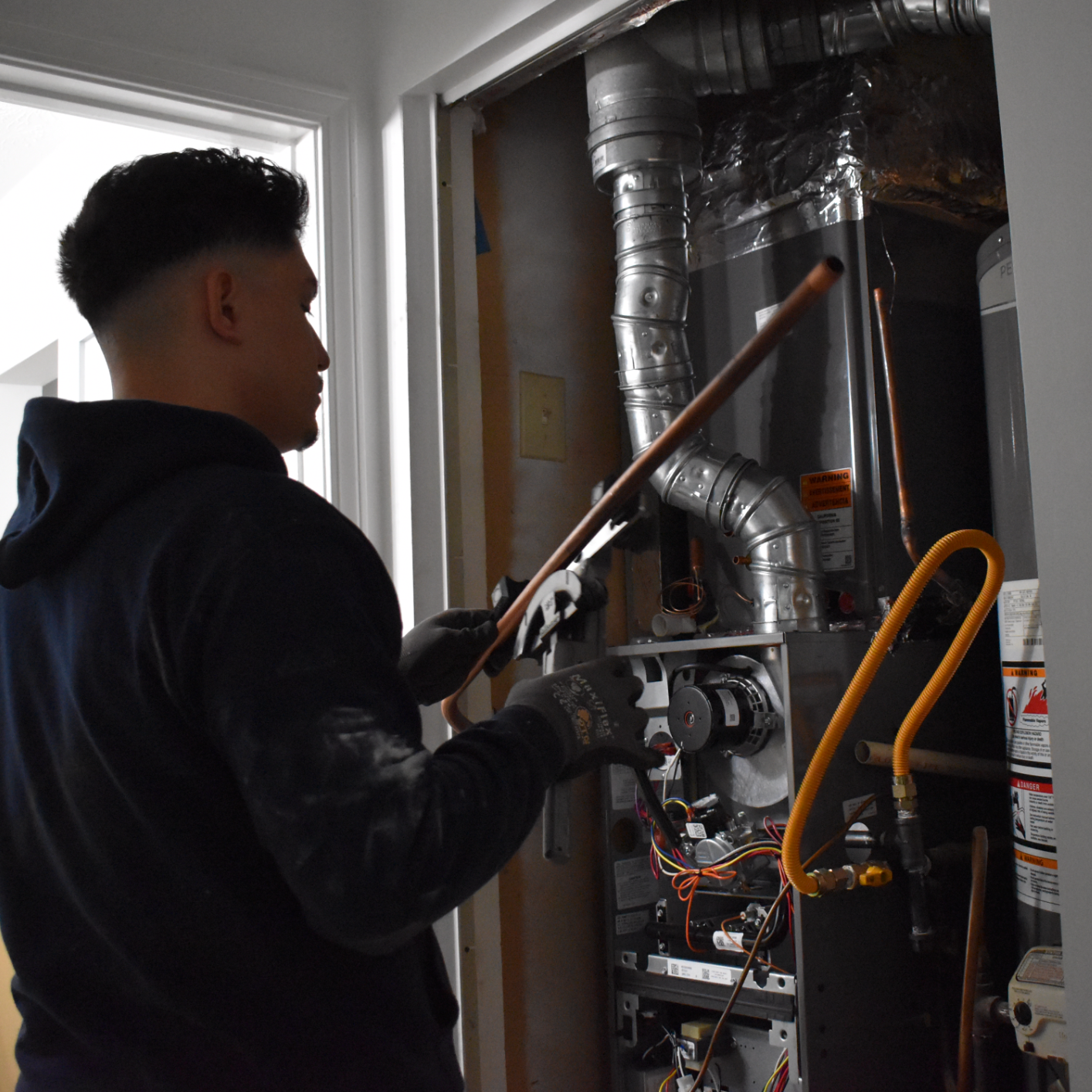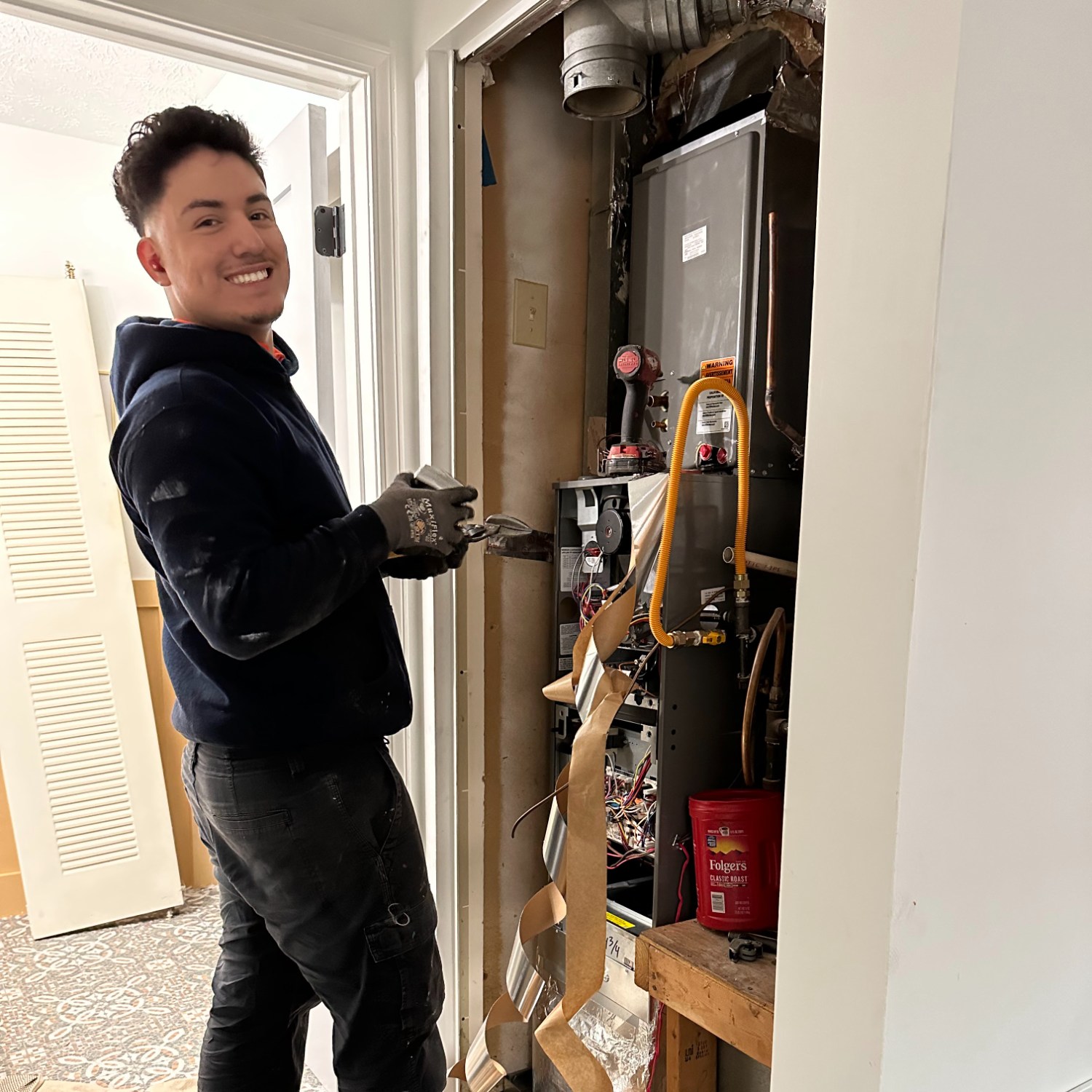What to Know Before Replacing Your Furnace
Four Furnace Replacement Considerations
If you are thinking about replacing your furnace, there are several important factors to keep in mind to make sure you choose the right system for your home. Investing in a new heating system can improve comfort, energy efficiency, and reliability, but only if it's properly sized, installed, and matched to your home's needs.
At Estes Services, we've been helping Atlanta homeowners with furnace installation and heating replacement since 1949. Here's what to consider before upgrading your system.
1. Furnace Size
Choosing the right furnace size is one of the most important steps in the installation process. A unit that's too large or too small can lead to uneven heating, short cycling, and higher energy costs.
Your Estes HVAC technician will perform a load calculation to determine the correct heating capacity for your home. This calculation considers your home's square footage, insulation, number of windows, and more to ensure your new system delivers the perfect balance of comfort and efficiency.
2. Furnace Technology
Modern furnace technology has come a long way. Today's systems offer advanced features that improve comfort and energy savings.
Variable-speed furnaces, for example, can automatically adjust their airflow to meet your home's heating needs. This technology delivers consistent temperatures throughout your home while operating quietly and efficiently.
Some models can even enhance humidity control in the summer, helping your air conditioner perform better and keep your home more comfortable year-round.
3. Furnace Efficiency
A high-efficiency furnace might cost more upfront but can save you money over time through reduced utility bills. Furnace efficiency is measured by the Annual Fuel Utilization Efficiency (AFUE) rating. The higher the AFUE, the more efficiently your furnace converts fuel into heat.
For instance, an older furnace might have an AFUE of 70%, meaning 30% of the energy is wasted. In contrast, modern Energy Star® certified furnaces can reach AFUE ratings of 95% or higher, significantly reducing wasted energy.
Many high-efficiency furnaces may also qualify for utility rebates or federal tax credits, making them a smart long-term investment.
4. Heating Stages
Furnaces come in three main types based on heating stages:
Single-stage furnaces operate at full capacity continuously.
Two-stage furnaces can run on a lower setting most of the time and switch to a higher setting when needed.
Modulating furnaces continuously adjust their output to match your home's exact temperature needs.
While single-stage models are more affordable, two-stage and modulating furnaces offer better temperature control, quieter operation, and higher energy efficiency.
Professional Furnace Installation in Atlanta
Replacing your furnace is a major investment in your home's comfort. Professional installation ensures your system performs efficiently, safely, and reliably for years to come.
The licensed HVAC experts at Estes Services specialize in furnace installation and heating replacement across Metro Atlanta. We proudly install Carrier heating systems, known for their advanced technology and superior performance.
Call (404) 366-9620 or schedule your furnace estimate today and keep your home comfortable all winter long.
Estes Services - Comfort You Can Count On Since 1949. It's that Easy, It's Estes


Frequently Asked Questions About Furnace Replacement
1. How long does a furnace last?
Most furnaces last between 15 and 20 years with regular maintenance. If your system is approaching this age, it may be time to consider replacement.
2. What size furnace do I need?
The right furnace size depends on your home's square footage, insulation, and layout. Estes technicians perform detailed load calculations to ensure your new furnace is perfectly sized.
3. What is the most energy-efficient type of furnace?
High-efficiency, variable-speed, or modulating furnaces typically offer the best performance and lowest energy consumption. Look for Energy Star® certified models with high AFUE ratings.
4. Should I repair or replace my furnace?
If your system frequently breaks down, produces uneven heat, or drives up your energy bills, replacing it may be the more cost-effective option.
5. Can a new furnace lower my heating bills?
Yes. A properly installed, high-efficiency furnace uses less energy to heat your home, reducing monthly utility costs while improving comfort.

